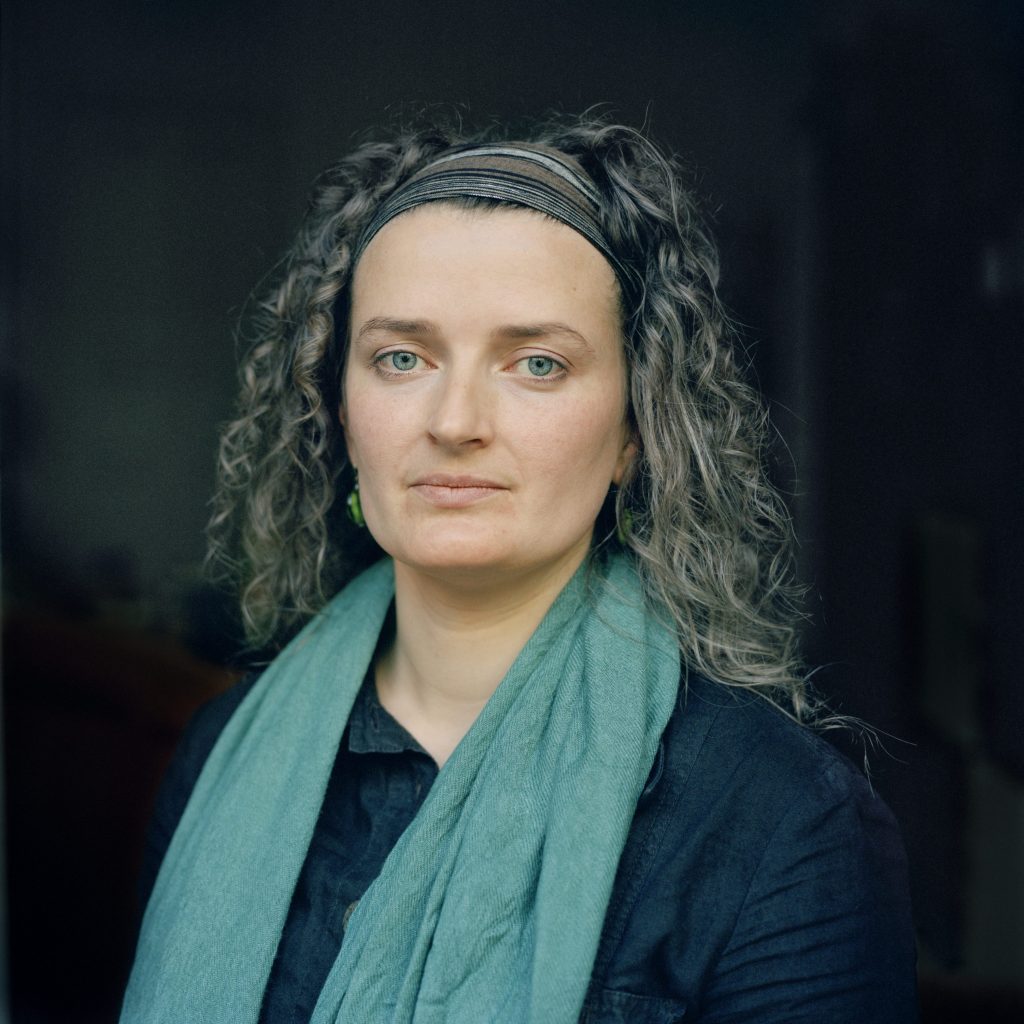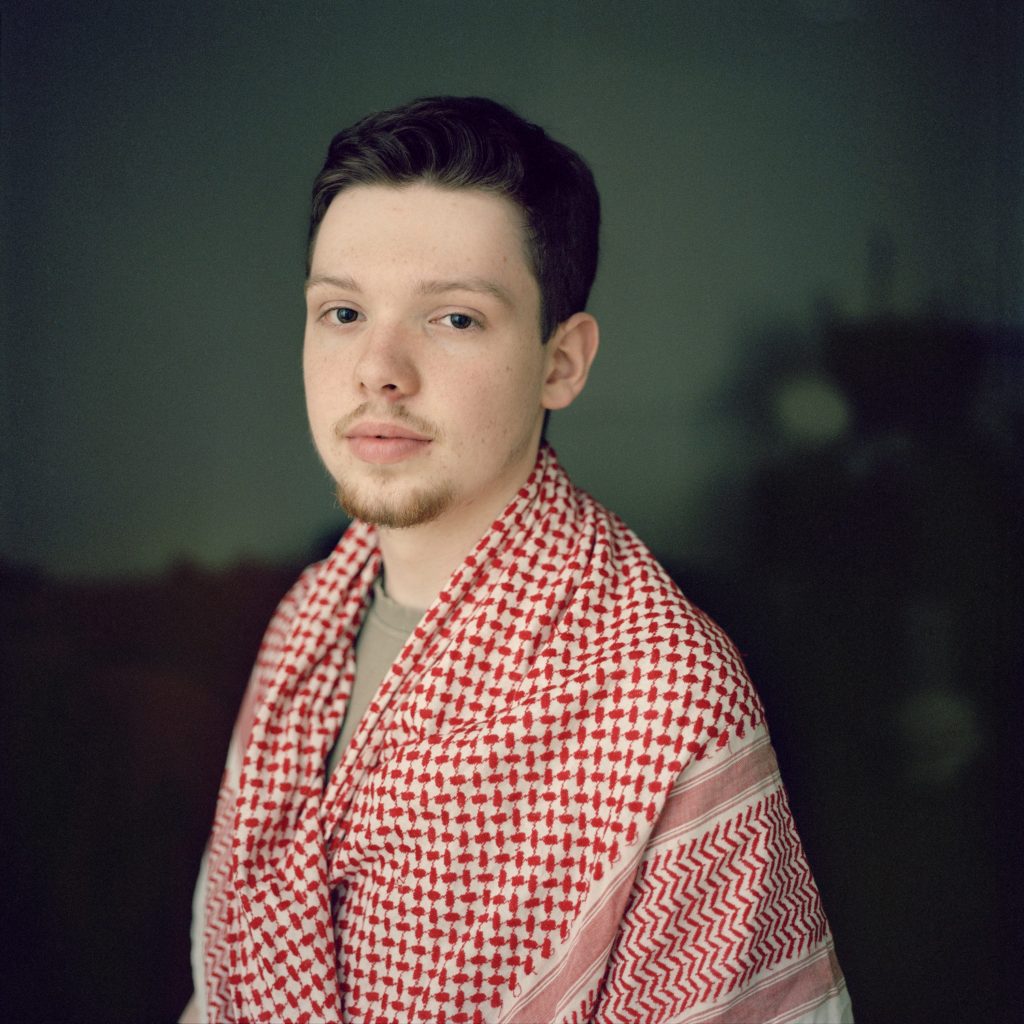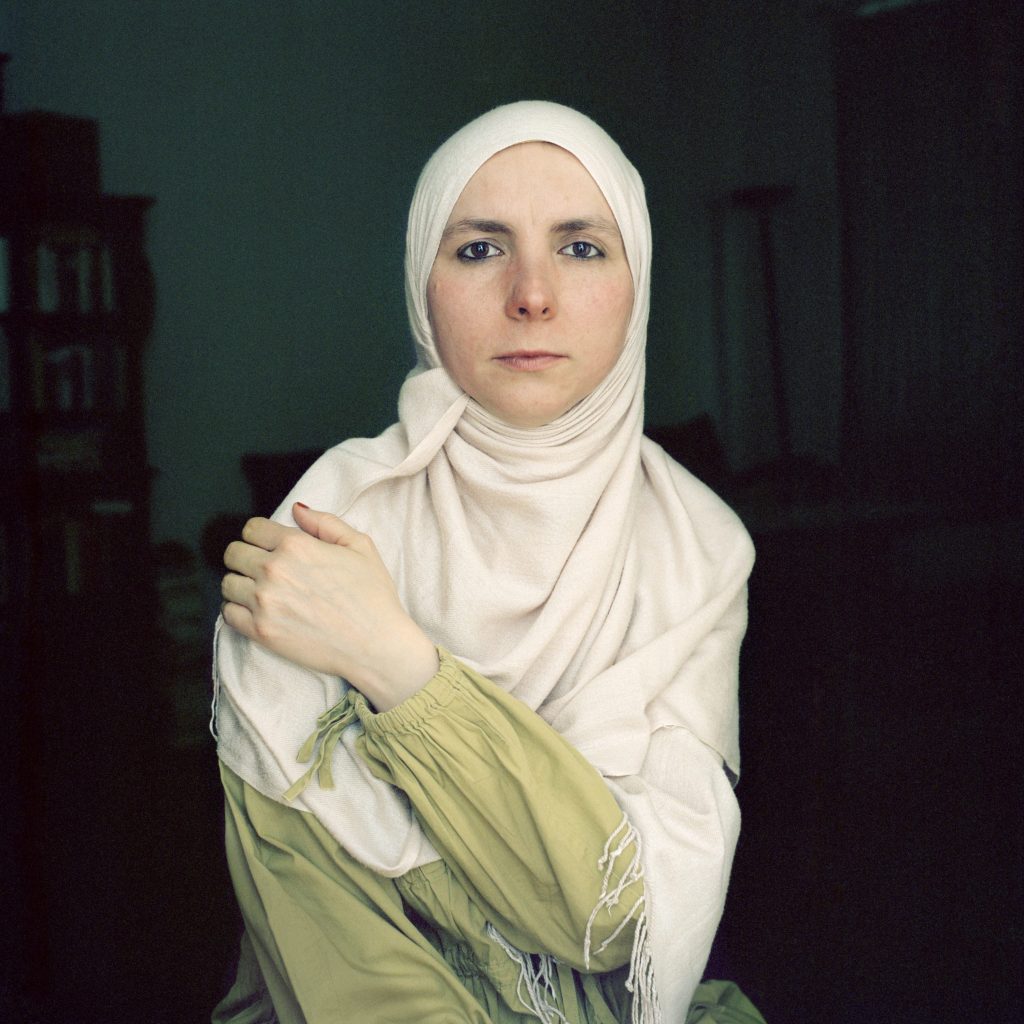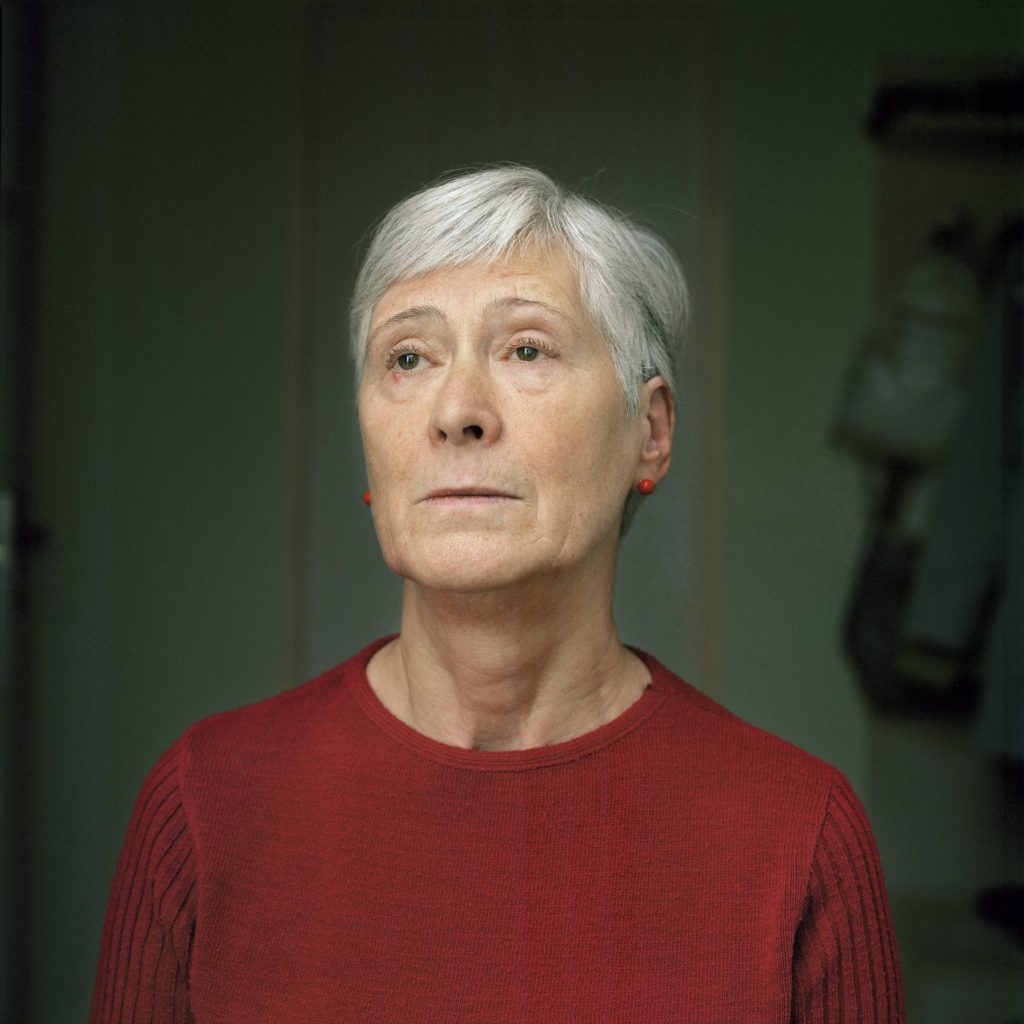Becoming Muslim
In a time when Islam is increasingly portrayed as incompatible with western values, it is striking that more and more Europeans are becoming Muslim, says Professor Esra Özyürek.

As a Turkish woman, I have seen first-hand the dynamism and tension that occurs in a country where different religions and empires come together. Asia and Europe, Christianity and Islam, religion and secularism: all these tensions shape daily life, politics and discussion in Turkey. Perhaps that is why I have always been fascinated by converts: those who embrace different ideas and different beliefs from those practised by their parents and grandparents and make those beliefs their own.
My research, focused on Germany, examines why Germans convert to Islam and, more recently, how Muslims, immigrants from Turkey and Syria, become German. And I’ve found that – unlike the news reports – the picture is complex, drawing together identity, faith, community and, perhaps most importantly, love.
There is no single kind of German who converts. They come from all backgrounds and levels of society: from East and West Germany, Catholics, Protestants and atheists. But their conversion paths are similar. Most people convert as a result of their personal links and friendships with Muslim people – in recent years, these links have become more widespread, but the path to becoming Muslim over the past 100 years has remained surprisingly consistent.

A hundred years ago, Muslims in Germany were from an elite class: doctors, engineers and traders from Turkey and India. Islam represented high culture. Mosques established by Indian Muslims became gathering places for educated, wealthy people to hear stories about the Orient. These Germans became the first converts, along with those who travelled to Muslim countries.
After the second world war, the face of Islamic Germany began to change. Workers from all over the world came to rebuild the country. Muslim workers, mostly from Turkey, began to connect with working-class Germans. Even though they mostly lived in workers’ dormitories, humans always find ways to connect with each other. So, they met and married Germans, and some conversions happened that way.

The 1980s and beyond saw big changes in the working-class Turkish communities in Germany. Changes to employment law allowed them to bring in their families. Factories closed and unemployment rose. Germany opened its doors to refugees from many more Muslim countries. People with Muslim backgrounds now tended to live on the outskirts of cities, where they lived alongside not only other Muslims, but also poorer non-Muslim Germans, eastern Europeans and immigrants from across the globe. People began to convert in these neighbourhoods, and the average age of conversion fell.
To these converts, Islam is the religion most compatible with the values of the traditional German Enlightenment. Back in the 1920s, some in Weimar Germany argued that the country needed spirituality rather than modernity to get out of its crisis
What is it like to convert? For some, Islam offers a structured life: it can help you start a family or a business, go back into education, or find a community. It frowns on drinking and gambling, and can be a way to establish a new path. Yet my research found that conversion comes with stigma. For some young German converts, that’s part of the attraction: I have met converts who you might call teenage rebels. They want to feel like outsiders: they enjoy it when others are uncomfortable around them. But I have met many others who were taken aback at how differently they were treated after they converted, particularly women who chose to wear the headscarf. People talk to them slowly and loudly, assuming they could not understand German. Often, converts were considered insincere or manipulated by others – or they were accused of being potential terrorists.

Tension could also arise with other Muslims. While many (born) Muslims were happy to hear of people who had converted, not all were ready to welcome converts into their families or social lives. Indeed, during my research, converts often expressed disappointment at not being part of an idealised Muslim family. Many had small or broken families; they longed to be part of a big family with strong links. But their lived experience could be quite different: a German woman convert who married into a Turkish family reported how the family didn’t necessarily warm to her – their attitude was “You might be a Muslim now, but you are still German.” When their new family didn’t embrace the convert in the way they imagined, it caused a lot of heartbreak. And when a man came into the family, there was often even more resistance.

I also found tension between Islam as it is practised by those with a Muslim background, and converts’ ideas about how it should be practised. To many of the converts I spoke to, Islam is the religion most compatible with the values of the traditional German Enlightenment. Back in the 1920s, some in Weimar Germany argued that the country needed spirituality rather than modernity to get out of its crisis. And some believe, today, that Islam is that answer. They see it as a purer religion: you are closer to God; there are no intermediaries; and they contrasted this with what they perceived to be the complex structure of other faiths such as Catholicism.
This exploration into how Germans become Muslim has also led me to my current work: the question of how Muslims become Germans. What does it take for people from Turkish or Syrian backgrounds to no longer be the Auslander?
These converts argue that all the negative ideas that we have about Islam come from tradition and culture, rather than the religion itself. These traditions are not the ‘real’ Islam, and if you get rid of them, this structured religion is a great fit for German character. It was a surprise to me to hear, over and over again, that Islam is perfect – “it’s the people who participate in it that are bad”. I have been told that Islam would undoubtedly spread far and wide in Germany… if it wasn’t for Muslims. These people are not real Muslims, they say: they drink, they gamble, they should all go back to their own countries.
This jarred somewhat with my hope that conversions might lead to a more united, harmonious society! Yet if conversions are happening, then it follows that meaningful intimate connections between German Muslims and non-Muslims are also happening. I heard more than once how a convert was impressed by the commitment of a work colleague who would use their break for praying rather than smoking, and their sure feeling that there is a God.

This exploration into how Germans become Muslim has led me to my current work: the question of how Muslims become Germans. What does it take for people from Turkish or Syrian backgrounds to no longer be the Auslander (outsider)? A big part of German identity after the war was based on the idea of the community taking responsibility for the Holocaust and establishing personal values based on that atonement. So how does this translate for Muslims seeking to be German?
In Germany, the Holocaust is often understood as a guilt that belongs to the older generations: “this is our guilt, not yours”. But after 2000, curriculums changed. There is a feeling today that Germans have atoned for, and overcome, their antisemitism. Instead, Muslims are the focus: they need to do penance – not non-Muslim Germans.
Consequently, new Holocaust education programmes have focused on specific groups who are perceived to have their own sins. They use the German model of feeling guilty and responsible for what your ancestors have done, and taking on this responsibility. Arabs, for example, are encouraged to consider the Mufti of Jerusalem and his collaboration with Hitler. Intriguingly, this is a way to include immigrant Muslims into the Holocaust memory, citing antisemitic ancestors in their genealogy, creating a separate story.

But this still doesn’t mean Germans will take Muslims into their society and into their own narrative. Germany has spent 75 years coming to terms with the Holocaust, and this is admirable. The UK doesn’t do it with colonialism; the USA doesn’t do it with slavery. But we must be careful that it is not used to further marginalise some of the most marginalised groups in German society. A fight against racism shouldn’t just be stuck in the past: it should have a meaning for a fight against racism today, too.
What I would like people to take from my work is that all belief systems belong to all of us. And they should be available to all of us without judging and then without feeling that a belief system is our personal property. I want to get away from this group mentality. We are all humans. I don’t want to take a position on whether ideas came from God or from humans. But if there is a God, then it is for humans. It is for all of us.
-
Konvertieren by Lia Darjes
In this series portraying Germans who have converted to Islam, Berlin-based photographer Lia Darjes asks the viewer to question their own perceptions of Islamic converts, challenging western stereotypes of Muslims.
Esra Özyürek is Sultan Qaboos Professor of Abrahamic Faiths and Shared Values.







